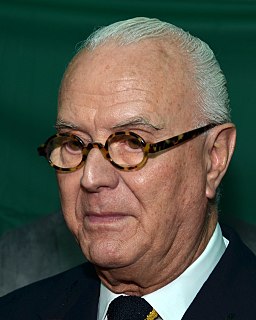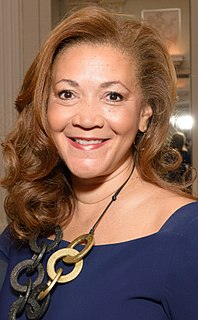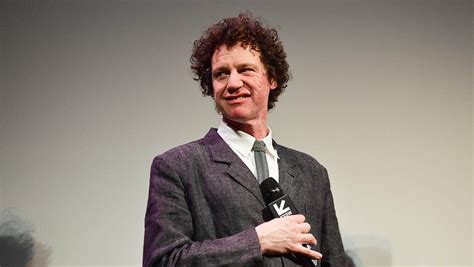A Quote by Manolo Blahnik
I'm not very nostalgic, you see. I just don't think anybody has that kind of thing anymore. By culture, by breeding, by whatever, it's not there. The kids today-what the hell are they going to be? I like young people - yes, I do. But when I talk to people at the schools, and they say, "I saw you on the Twit," I don't even know what they are talking about.
Related Quotes
The basic thing is to be humble, and pretend you're a bartender in the tavern of life. Don't get too comfortable and don't really listen to anybody else. Don't stand around with a bunch of writers and talk about writing. You know when you see plumbers at a plumbers convention, usually they're not talking about plumbing: they're talking about whatever it is that two men happen to talk about. They're talking about sports, their wives and children. I just tell my students, don't talk about writing too much, just go out and do it. Find out whatever you need to get to the mainland.
Same-sex marriage is so ingrained in the culture now that when you're talking about regular, good old-fashioned marriage, you have to say "opposite-sex marriage" to let people know what you're talking about. Just describing, just talking about "marriage" doesn't let anybody know what you mean anymore. You have to specify opposite-sex marriage.
It's just that for so many people that I know, Christianity's this matter of... it has everything to do with morals. Christianity is a religion about morals. And they will even talk about Jesus. And they will say kids need to know about Jesus so they won't smoke, drink, or dance, or go with girls that do, and all that kind of thing. And I kinda go, 'That's not why people need to know about Jesus. The only reason - The only possible excuse for talking about Jesus is because we need a Savior.'
World War II vets in general didn't talk about their experiences. They believed there was something better and that they were going to prove to America what they could be and show America what it could be by being the change that they wanted. Like that Ghandi phrase "be the change that you want to see" but I think that it was also just a different culture. People didn't want to complain, whereas today if you go to the Starbucks and they mess up your order you might tweet about it. You know it's a different kind of culture.
It makes me think about how you hear these young people say, "I see you, man." Or even if you go and watch some basketball game over the summer and the announcer goes, "I see you," and you see that player smile. You know what I mean? That thing of just being recognized, especially when you do a little subtle thing. I don't know.
I'm not scared anymore, I just ... I don't know. I think it's because I saw someone else, someone behind your face, like you'd taken off a mask. It was still you, but it wasn't. And I don't think that person is going to hurt me, or Marci, or anybody else, but ... I guess the thing is that I don't know anything about that person. At all. And that's what scares me more than anything - that there could be two people, so different, and one of them so secret.
The only thing I knew in the world as a little kid was comedy. And no other kids in my school cared about it at all. There was no one to talk about it with. You know, we're in a geek culture now where comedy is so giant. I'm one of the people that, you know, works on Funny or Die. And there is just a giant culture of comedy nerds. But back then, I was alone, and I had a little confidence about it because I felt like, this is my thing, this is the only thing that only I know about.
I think when I was a young person, there was just kind of - there was very little dialogue about it. And there was just kind of one way to be gay, right? You saw very effeminate guys. You saw very butch women. And there was no kind of in-between. And there was no - you know, there wasn't anything in the media. There wasn't anything on television.
Every time you hear anyone talk about the Caribbean, whether it's Caribbeans themselves or people outside, there's always talk about women's bodies. Talk about this voluptuousness, this kind of stereotype of what a Caribbean person is. And I think these are stereotypes that even people inside the culture, we actually sometimes claim them and we're very proud.
I've just recently started doing the promo bits for the new album, and the funny thing is that the people who come to talk to me about these things seem to be getting younger. It's like the people who like the music are all young kids and they're on top of you - they know all about what you're doing, and they're excited and animated about it. So it's a lot of fun.
I go into every meeting, into every room and for every speech understanding the standard deviation, the Bell Curve. I know there are about 10-15 percent of people in the room, who say, "I've been trying to say this for years. Finally. I agree. Yes, yes, yes." I know there are about 15 percent of the people in the room who think I'm an idiot, who think I don't know what I'm talking about, who think I'm naive or I have oversimplified everything. The majority who are open to the ideal.








































